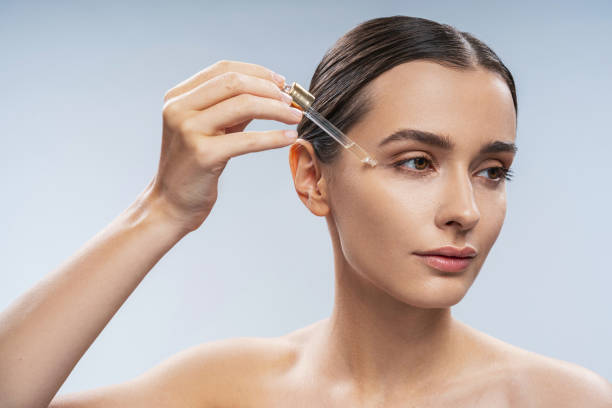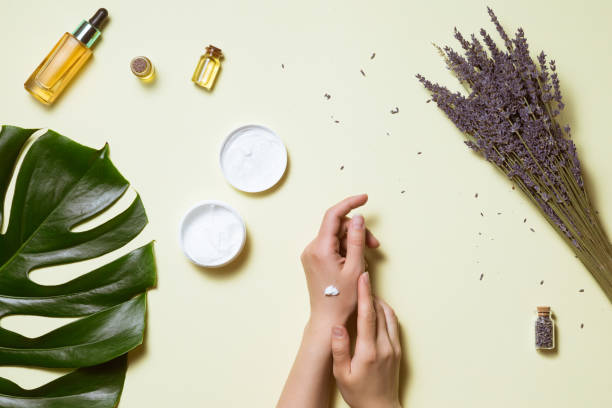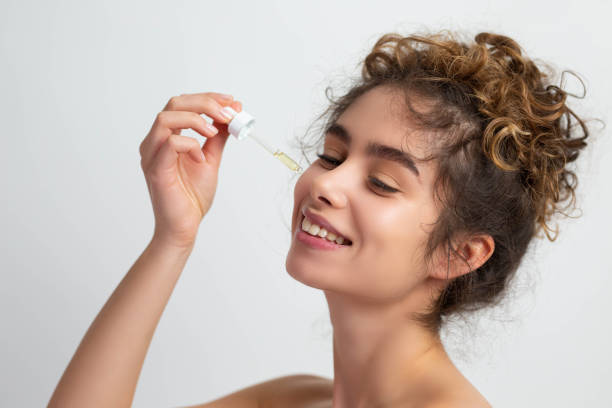In the beauty field that continues to change, facial serum have become an essential item for anyone committed to a healthy looking complexion. But what is a serum and why should you include it in your skincare routine? This guide will go comprehensively into everything about serums from their importance to how they can be incorporated into one’s daily skin care routine.
What are Facial Serum?
Facial serum is a light liquid that absorbs fast and is formulated to supply high concentration of active ingredients directly into skin. Unlike moisturizers which serve mainly as hydrators, these contain powerful elements like vitamins, antioxidants, peptides, and hyaluronic acid. These components focus on particular issues like wrinkles, fine lines, dark spots or dryness.
Serums may either be oil-based or water-based and due to their thin consistency they can infiltrate deeper into layers of the skin thereby providing nutrients where it matters most. That is why many believe them to be more potent than creams or lotions that mostly operate on the surface of skins.

Why Use A Facial Serum?
Deep Moisture: Most often serums have humectants such as hyaluronic acid which attract moisture on the skin keeping it hydrated and plumpThis maintains the moisture and fullness of your skin to reduce the appearance of fine lines and wrinkles.
Targeted Treatment: Whether you’re dealing with acne, hyper pigmentation or aging skin, there’s a serum for that. Serums allow you to tailor your skincare regimen to meet your specific requirements.
Improved Skin Texture: Use of serums on a regular basis can result in smoother, more evenly toned skin. Substances such as vitamin C and retinol are known to enhance skin texture and tone over time.
Enhanced Absorption: Due to their light weight, serums can be easily absorbed by the skin hence ensuring active ingredients reach deeper into the epidermis than thicker creams would have done.
Boosted Effectiveness of Other Products: Serums may boost the effectiveness of other skincare products such as moisturizers and sunscreens in your routine. They create an even playing ground for these products leading to better results.
Choosing the Right Serum for Your Skin Type
Picking The Appropriate Facial Serum For Your Skin Type
With so many different serums available on the market, it might seem overwhelming when trying to choose one that is right for your skin type or concern s. Here is what you should be looking for if you have dry/oily/combination/sensitive/acne-prone skins:
Dry Skin: Look out for serums containing hydrating ingredients like hyaluronic acid, glycerin etc. These will replenish moisture levels whilst also fortifying the skin barrier functions.Oily or Acne-Prone Skin: When you have oily skin or acne, use serums containing salicylic acid, niacinamide or tea tree oil. These contents help in reduction of oil production, inflammation and prevention of breakouts.
Aging Skin: Serums that feature retinol, peptides and antioxidants such as vitamin C are the best for dealing with fine lines, wrinkles and sagging. With these components, collagen production is boosted while skin is safeguarded against damage caused by harsh environmental factors.
Sensitive Skin: Go for serums having ingredients like aloe vera, chamomile and centella asiatica to calm your skin. This will minimize irritation and redness without causing further sensitivity issues.
Hyperpigmentation: If your main concern is about dark spots or uneven skin tone look out for serums formulated with vitamin C, kojic acid or licorice root extract. They will brighten up the complexion and diminish discoloration over time.

How to Use a Facial Serum in Your Skincare Routine
Incorporating a serum into your skincare routine is not complicated; however there are certain important steps that must be followed in order to get the best out of it:
Cleanse Your Skin: Begin by cleaning your face first. Take advantage of a mild cleanser to remove any dirt, oil or makeup from your face as this helps prepare your skin to absorb the serum more effectively.
Apply Toner: For those who use toners follow immediately after cleansing. It helps balance the pH of your skin and also ensures that all impurities remaining on it are removed thus setting the stageApply the Serum: Place a few drops of serum onto your fingertips and lightly tap it into your skin. Concentrate on regions you have specific issues such as crows feet or spots that are still darkened. Allow the serum to sit for several minutes before proceeding.
Moisturize: Use a moisturizer afterwards so as to keep active serum components in place. This maintains adequate levels of moisture in your skin throughout the day.
Sun Protection: Make sure that if you use your serum in the morning, always apply a broad-spectrum sunscreen at last. This is so crucial when using most serums with ingredients like vitamin C or retinol especially if one wants to avoid getting their skin burnt from sun’s rays.
Common Facial Serum Ingredients and Their Benefits
Understanding the ingredients in your serum can help you choose the right product for your skin concerns. Below, therefore, are some common substances found in serums and what they do:
Hyaluronic Acid: A powerful humectant capable of pulling and retaining moisture within the skin, therefore making it best for hydration purposes.
Vitamin C: An antioxidant that brightens complexion, removes dark patches and protects against free radicals’ harm.
Retinol: A derivative of vitamin A that promotes cell turnover, minimizes fine lines as well as wrinkles and enhances texture of skin.Niacinamide is a form of vitamin B3 that regulates oil production, enhances the skin’s barrier function and treats inflammation.
Peptides refer to short chains of amino acids that stimulate collagen production leading to a more youthful looking skin with less wrinkles.
Salicylic Acid: This is a beta-hydroxy acid (BHA) used in exfoliating the skin, unclogging pores, and treating acne.
Kojic Acid: A lightening agent naturally occurring on the skin reduces older scars and balances complexion.

Tips for Maximizing Facial Serum Benefits
To get the most out of your facial serum, keep these tips in mind:
Less is More: You need only a small quantity because serums are highly concentrated. An excessive amount does not necessarily boost its effects and could cause discomforts in place of them.
Layering Facial Serums: Various serums can be applied one after another if different skin problems are observed. However, caution should be taken while mixing contents which may not go well together like retinol with vitamin C; it might be better to use one during daytime hours and the other at night time.
Be Patient: Although serums are powerful treatments they don’t work overnight. With consistent use over several weeks, you will see noticeable improvements in your skin
Store Properly: The potency of some ingredients such as Vitamin C can degrade with exposure to air or light so keep your serum bottle in a cool dark area.
You may like-Mascara Facial-Way to glowing skin in 10 mins
Get super glow: Guide to Peeling Facial
4 Best Shampoo for Wavy Hair: Your Game Changer
Culmination: Is a Facial Serum Right for You?
Facial serum are powerful in any skincare routine with their ability to do numerous treatments for different skin problems. You can achieve your skincare goals, may it be hydration, brightening, or reversing aging signs, by using the right serum. Having knowledge of what type of skin and its concerns is useful in selecting the appropriate serum to include in one’s daily schedule for radiant and healthy skin.
Consistency is key in successful skincare. Thus, remain loyal to your preferred serum, apply it correctly and wait patiently as time passes. After a while, you will start seeing how well-developed formulae can transform your skin through facial serum like these. THANK YOU AND KEEP LOVING!
